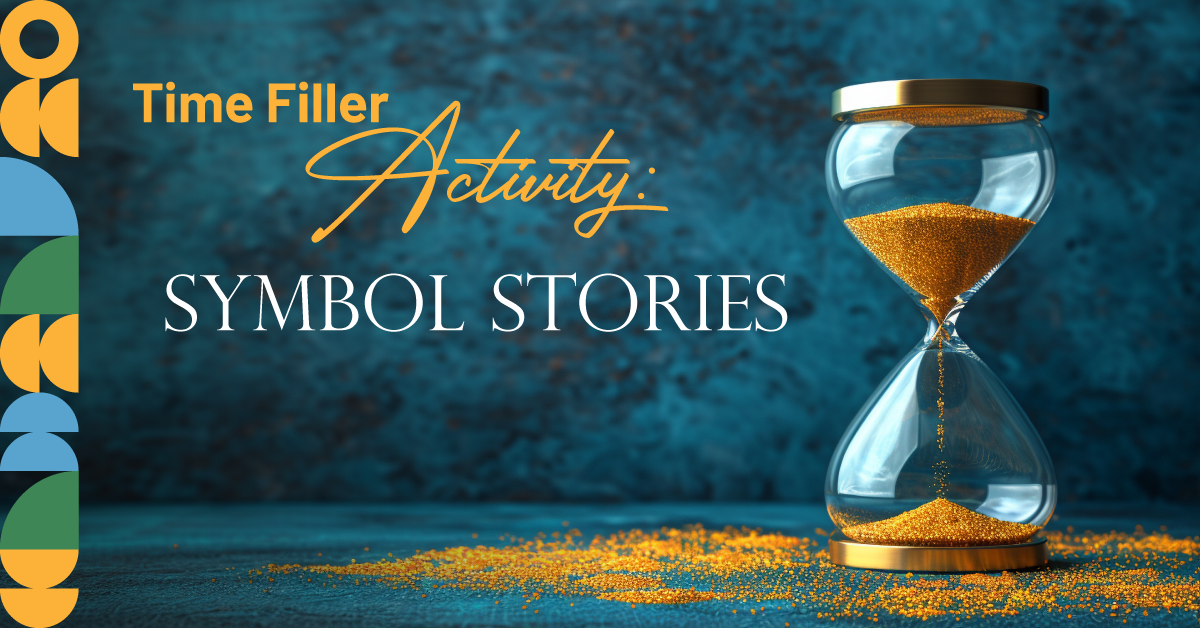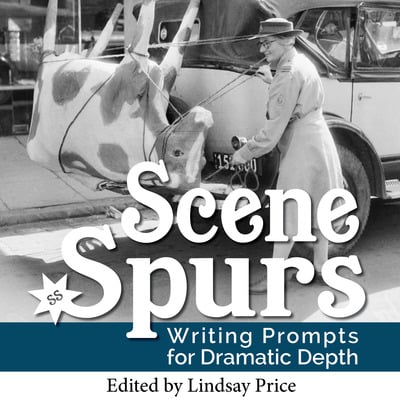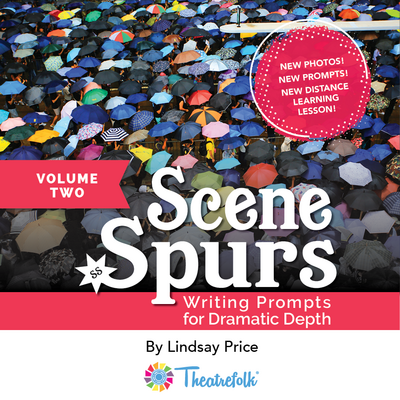A squirt gun would never be mistaken for a real gun, right? Dive into the thought-provoking world of Water. Gun. Argument and challenge what we choose to believe. A thought provoking and powerful piece in a docu-theatre style.
Time Filler Activities: Symbol Stories
Sometimes you have a few minutes at the end of class where you need to keep your students occupied, but you don’t want to start a new exercise or let the class devolve into mindless chatter. Enter time filler activities! This month we’ll be sharing some great games and simple activities that you can whip out whenever you’ve got some spare minutes to fill. And you can always extend the gameplay out longer next class if you find that your students are really connecting with it.
Symbol Stories is a simple game that challenges students to invent a story using prompts from symbols on a set of three dice. It helps students to practice quick and creative thinking, as well as verbal communication skills.
Materials Needed:
- Set of three oversized dice
- Paint or markers or cutouts of symbols to attach to the dice
- Scissors
- Glue/tape
- Small shallow box or bag (for storage)
Preparation:
1. Select 18 different, easily identifiable symbol images (one for each side of the three dice) that you will draw, paint, or cut out to put on the dice. Some symbols might include a tree, a crown, a book, a squirrel, a pencil, a house, a key, a flower, a fish, a cake… there are lots of options.
See the giveaway below for a list of symbol prompt ideas.
2. Draw, paint, or cut out and glue a different symbol on each side of the dice.
3. Once the dice are dry and complete, place them into a small shallow box or a bag for safekeeping.
Activity Instructions:
1. One student will roll the three dice.
2. Have them announce to the class the three symbols they’ve rolled, for example, a guitar, a bicycle, and an apple, or a chicken, a lollipop, and a mug.
3. The student will then make up and tell a story that includes all three items in some way.
4. The story can be in any style (funny, scary, dramatic, etc.) as long as it’s appropriate for the classroom. It doesn’t have to be long! It could be as simple as, “I was riding my bicycle down the street when I noticed a man sitting under an apple tree playing a guitar,” or “My sister’s pet chicken broke my favourite mug. I was so upset that I dropped my lollipop.” Or, the story can be as detailed as the student wishes, as time permits.
5. Have as many students tell stories as you have time to fill. You can have students each roll the dice and have different symbols for each story, or roll the dice once and have each student tell a different story using the same symbols. For example, if the dice roll is a crown, a squirrel, and a pencil, one student might tell a story about a royal squirrel wearing a crown writing a letter with a pencil, while another student tells a story about a person stealing a crown from a pencil-wielding squirrel. Or perhaps a queen with a crown writes a decree with a pencil that all squirrels have been banned from the country. See what interesting stories your students come up with!
Alternate Ideas:
If you don’t have oversized dice, you can use a set of index cards or plastic poker chips with one symbol per card or chip. For the chips, you can have students draw them out of a box or bag. For the index cards, turn them upside down (so the blank side is facing the student), shuffle the cards, and have students select three cards at random. Aim to have between 18–20 cards or chips.
You could also simply print the prompt idea grid from the giveaway below, cut out the squares, and toss them into a hat or paper bag. Laminate the cutouts for extra sturdiness.
Have one student tell the story while two additional students act out or mime the story at the same time, listening and reacting to what the storyteller says.
Have a minimum or maximum amount of time that the story must fill. For example, the story must be shorter than 30 seconds, or the story has to be longer than a minute. Or, you could limit the number of sentences or words the storyteller can use.
Instead of verbal storytelling, use the dice rolls as a scene or monologue writing prompt.
Have students come up with as many different scenarios as they can (using all three dice rolls) in three minutes.
Have students roll the dice or choose symbols for each other.
Have students improvise a sales pitch for each symbol they roll.
Create a single item or product using all three symbols, for example, a chicken-flavoured lollipop in a mug, or a lollipop-print mug for chickens.
Related Articles
Scene Spurs - Writing Prompts for Dramatic Depth
by Lindsay Price
Scene Spurs is a collection of photo-based writing prompts developed by playwright Lindsay Price. The set includes 35 different Spurs along with an instruction guide to integrate them into your drama classroom.
Scene Spurs: Writing Prompts for Dramatic Depth Volume Two
by Lindsay Price
35 more photo-based writing prompts developed by playwright Lindsay Price. Includes an instruction guide and tips to integrate them into a distance learning curriculum.


